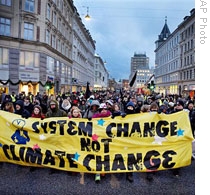题目内容
For the kite-flying competition, his grandfather made a _____ kite.
| A.silk dragon-shaped golden | B.golden silk dragon-shaped |
| C.dragon-shaped golden silk | D.golden dragon-shaped silk |
C
解析

This chart shows the top 10 songs from TOP HITS HOT 100 of the week ending July 8,2003.
| This Week | 1 Week Ago | 2 Weeks Ago | 3 Weeks Ago | Title | Performer, Lyricist, Producer, Record Company | Weeks on Chart |
| 1 | 3 | 5 | 9 | BACK FOR GOOD | Take That G Barlow Chris Poter And Gary Arlow BMG | 10 |
| 2 | 2 | 1 | 2 | RUN AWAY | The Real McCoy J Wind, Oickmix, Jeglitzs Fresh Line And Bermarr Brothers MBG | 11 |
| 3 | 1 | 2 | 3 | HERE’S JOHNNY | Hoeus Pocus Xtro And Cubrick Xtro And Cubrick Central Station Records | 9 |
| 4 | 4 | 3 | 5 | TOTAL ECLIPSE OF THE HEART | Nieki French Jim Steiman J Spingate Shock | 10 |
| 5 | 5 | 4 | 1 | THINK TWICE | Celine Dion A Hill And P Sinfild Christopher Neil Sony | 12 |
| 6 | 9 | 12 | 14 | SUKIYA KI | 4 Pm H Nakamura Veit Renn Folygram | 3 |
| 7 | 8 | 17 | 19 | MOUTH | Merril Bainbridge Ross Fraser George Siewooi And Owen Boeweell BMG | 8 |
| 8 | 19 | 31 | 77 | EVERYB ODY ON THE FLOOR | Tokyo Ghetto Pussy Tokyo Ghetto Pussy Trancy Spacer Stony Records | 4 |
| 9 | 6 | 9 | 13 | COTTO N EYE JOE | Rednex Jan Ericsson Pat Reiniz BMG | 107 |
| 10 | 14 | 14 | 34 | STRON G ENOUG H | Sheryl Crow, David Baerwald, Kevin Gilbert, David Rickett&Brain Macleod Bill Bottrell Polygram | 7 |
63.The song that has risen most in the chart over the three weeks is .
A.Mouth B.Cotton Eye Joe
C.Strong Enough D.Everybody on the Floor
64.Which song has been in the chart for the longest period?
A.Back for the Good B.Cotton Eye Joe
C.SUKIYAKJ D.Strong Enough
65.The performer who had the song with best rank two weeks ago is .
A.Merril Bainbridge B.H Nakamura
C.The Real McCoy D.Tokyo Ghetto Pussy
66.The chart shows that Mouth is .
A.becoming less popular each week B.becoming more popular each week
C.the most popular song on the chart D.as popular as when it entered the chart
Poor families in some countries spend as much as eighty percent of their money on food. Rising prices in recent months have created the worst food crisis(危机) in more than thirty years. The United Nations World Food Program says high food prices could push one hundred million people into hunger.
Nathan Childs is an expert on rice markets. He notes that the harvest for the latest growing season was the largest on record. But India, Vietnam and others have restricted exports(限制出口) to keep prices down at home and protect supplies.
Thailand’s agriculture minister says his country will never restrict rice exports. He told the Reuters news agency Thursday that Thailand has enough supplies to meet demand at home and for export.
Thailand is the world’s largest rice exporter. Recent signs of an increase in supplies have helped ease record prices for Thai rice. Prices rose last week above one thousand dollars a ton.
Vietnam, the second biggest exporter, has banned(禁止) exports until June. And Vietnamese officials have now warned that non-food traders who buy rice for speculation(投机活动)will be severely punished.
Some experts say speculation is a necessary part of market activity. But the head of the U.N. Environment Program blames it for the high food prices. “We have enough food on this planet today to feed everyone.” Achim Steiner told the Associated Press.
Earlier, a member of the United States Commodity Futures Trading Commission didn’t accept the idea that speculators are the main cause. Bart Chilton blamed reduced harvests and grain supplies and the falling value of the dollar.
U.N. Secretary General Ban Ki-moon called heads of major international agencies to a meeting this week in the Swiss capital, Bern. He says high food prices could harm world trade, economic growth, social progress and political security.
【小题1】What is the main idea of the passage?
| A.Vietnam has banned rice exports to other countries. |
| B.Thailand is the largest rice exporter in the world. |
| C.Some families are too poor to afford enough food. |
| D.Rising prices of food have led to the world food crisis. |
A. Thailand. B. Switzerland. C. Vietnam. D. The USA.
【小题3】All of the following are the results of rising prices of food EXCEPT ____.
| A.the worst food crisis |
| B.reduced harvests and grain supplies |
| C.people spending more money on food |
| D.pushing one hundred million people into hunger |
| A.High food prices. |
| B.The falling value of the dollar. |
| C.Enough rice supplies in some countries. |
| D.Restricted food exports in some countries. |
